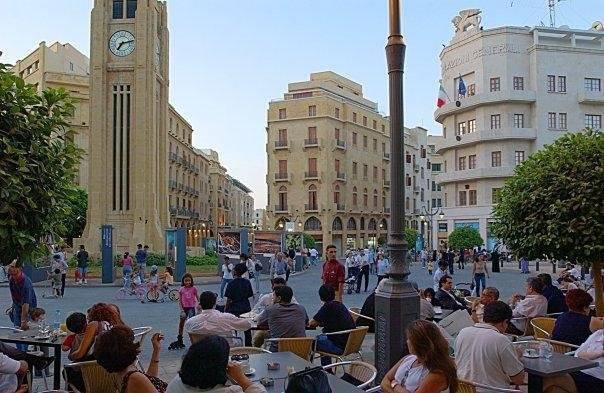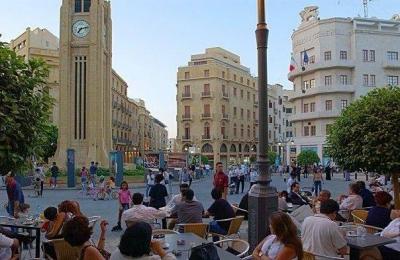In the only area where President Michel Aoun publicly intervened in favor of the Free Patriotic Movement's electoral campaign, which is Jezzine, the "Aounists" faced the toughest blow since the "General" returned from exile after the "Basilian" presence in the constituency was lost. The Lebanese Forces achieved a significant political and moral victory there, but this victory did not compensate for the "disaster" of losing one of the two seats in Bcharre at the hands of a partner of the Marada Movement, Melhem Khalaf. The seat of Joseph Iskandar, which "flew away," is equivalent to an entire list in Samir Geagea’s calculations.
The two models "inflated" the claims of victories by the Free Patriotic Movement and the Lebanese Forces, especially when the change voice intrudes into their stronghold and the "castles" of their allies with a "pressure group" that has already begun planning an agenda under the dome of parliament, which will likely embarrass all the ruling parties, including those "masquerading" as the opposition.
### The End of the “Genuine” Era
Only the numbers will clarify the true "mood" of the sects, regardless of whether a seat is "gained or lost" by the Free Patriotic Movement, the Lebanese Forces, or the Shiite duo. In the meantime, "mourning salons" were secretly opened in several locations despite claims to the contrary. Excluding the change forces that secured 14 seats in the parliament at the end of the term, the group of independent MPs, and Walid Jumblatt who is pleased with his electoral harvest represented by nine MPs and the fall of Wiam Wahhab and Talal Arslan in a moment of “surrendering everything,” as he said, to Taymour Jumblatt, everyone is currently busy analyzing the numbers and their implications.
The forces of Hezbollah, Amal Movement, the Free Patriotic Movement, the Lebanese Forces, the Nationalist Party, Marada Movement, and the Armenian Tashnag Party are nursing their wounds and preparing for major confrontations after the official announcement of the election results. The marathon begins with pressure to move towards electronic voting in parliament to put an end to the "genuine" era, and it does not end with the approval and amendment of laws, passing through the election of Nabih Berri as president for a seventh term and the election of the vice president, culminating in the file of the port explosion and the responsibilities of the parliament regarding it.
### Three Minorities
Electoral expert Jean Nakhoul told "Asas": "Hezbollah lost its majority after its share dropped to 60 MPs. But there isn't a majority for its opponents either. In fact, there are three minorities in the new parliament. The axis of the Lebanese Forces, the Progressive Socialist Party, and their allies of independents totals around 52 MPs; Hezbollah, Amal Movement, the Free Patriotic Movement, and their allies have 60 MPs after winning 71 MPs in 2018; and the change forces have 15 MPs."
Nakhoul points out that "for the first time, the single-party dominance has been broken in most sectors, which is a very important indicator. In the south, there are two breaches; in Bcharre, the duality of the Lebanese Forces has been "broken," in Zgharta, the leadership of the Franjieh family has been undermined through the "North of Us" list, while in Batroun, the setback came through the low preferential votes received by Gebran Bassil compared to the last election against the significant rise of his opponents in the region. If the electoral system had been majority-based, Bassil would have received only 20%, in addition to the setbacks in Jezzine and Baabda," adding that "the opposition forces would have achieved a real tsunami if the hesitant voters in all districts had realized that their votes would elect change MPs to parliament."
### "Iraqi Parliament"
However, some have a different interpretation of the ballot results. In the words of a seasoned politician, "We are facing an Iraqi parliament model where power is fragmented, with no side able to decisively lead or manage the phase." The examples are many: It is expected that during the election for Nabih Berri's seventh term, the parliament will be flooded with blank votes from the blocs of Gebran Bassil, the Kataeb, and the Lebanese Forces, down to the last change MP. Berri is expected to win by a simple majority, but what about his vice president? The March 8 forces have their candidate, the Lebanese Forces have their candidate Ghassan Hasbani, and the "change" lawmakers’ candidate is likely to be Melhem Khalaf. Will there be a collision? And who will provide the majority to elect the vice president?
The struggle of the minorities might be the inevitable result both inside and outside the council. The "independents" are leaving the lists of the Lebanese Forces, the Kataeb, the Free Patriotic Movement, and Michel Moawad one by one, indicating more fragmentation in the fragile parliamentary structure.
While organizing among opposition and change forces has already been initiated, differences have immediately begun to surface: one team insists on being represented in the next government while another “prohibits” this option, so the parliament becomes the sole theater of accountability and opposition. Another indicator suggests the disintegration of the "change front," but acknowledging that the almost only common ground among the opposing Christian parties and some independents and change forces is Hezbollah’s weapon, will these actors be fighting the battle to "take it away" from Al-Najma Square?! And do they carry a project for dialogue or confrontation with two groups that have recorded no breakthroughs against them in the electoral districts where they maintained their quota of 27 seats?
### Berri as the “Supreme Guide”
In a special session two days ago, with the presence of MP Walid Jumblatt, who is riding the wave of change and the uprising against the system, positions were observed from "the bey" whereby he elevated President Nabih Berri to the status of "Supreme Guide" for the post-election phase, praising the "historic alliance with Ain al-Tineh that continues with Taymour." Even the Saudi ambassador Walid Bukhari has been expressing positive stances towards Berri in his discussions, while Samir Geagea insists on "electronic voting" as an entry point for agreeing on supporting Berri's election.
These details complicate the task of reading the parliamentary scene and "sorting" the fronts following the opposition tsunami and the party's loss of its majority.
It will not be trivial in this context for Hezbollah to initiate the first public confrontation with the new guests who will be seated in the “symbols” of the past era, warning these individuals of “isolation if you do not cooperate with us. Do not miscalculate with us. If you do not want a national government, you are leading Lebanon to the abyss," alluding to the possibility that "some of them could be Israel’s shield inside the parliament."
In this context, Hezbollah and the Amal Movement completely refuse the idea that they have lost the majority, even though personalities like Faisal Karami, Eli Ferzli, Assaad Hardan, and Talal Arslan have fallen. Sources from this team state, "If the majority had fallen, the biggest loss would have been recorded by the Free Patriotic Movement as a party, and that did not happen. Otherwise, the millions of dollars spent by Fouad Makhzoumi in Beirut and his constant shouting against Hezbollah's weapon and invasion of the screens would not have left him with a single seat."
Malaak Aqeel - Asas Media




